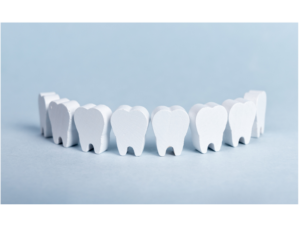- Heart 2 Heal
- 0 Comments
Article provided by Dr. Sam Petersen – follow him on Instagram @theboisenaturaldentist
Biologic Dentistry, The Functional Medicine Of Dentistry
To Me Biologic Or Natural Dentistry, Could Be Defined As The Functional Medicine Of Dentistry. I Could Go On A 3 Hour Diatribe About How That Is More Or Less The Case.
But if I were to sum it up concisely, I would say that biologic dentistry is simply being a little more cautious about what types of methods and materials are used for the procedures we do.
That is an oversimplification of course, but that is really the best summation. Let me give you a few examples.
Metal
As a general rule of thumb (there are always exceptions) I do not use metal in the mouth. Most dental metals are alloys that have a combination of metals in them, this creates an electrical differential in the mouth that creates a galvanized current in the mouth similar to that of a battery. Additionally, one of the more common metals used in dental alloys is nickel, which upwards of 20% of the population is allergic to.
I used to place titanium dental implants but now only place ceramic implants. As titanium has increased in popularity for medical procedures, so has the percentage of the population that has titanium allergies. Additionally, ceramic implants are electrically inert and do not interact with the electromagnetic fields or EMF’s that are so commonplace in our world today. In a recent study, it was found that when individuals used their cell phones near their head for more than 15 minutes, their titanium dental implants would heat up by 4-5 degrees!
Mercury
Mercury amalgam fillings or “silver” fillings, have been controversial since their inception back in the 1830’s. That controversy continues to this day. Many countries around the world have banned mercury fillings for the health and safety risks posed to people and the environment. But here in America, we stubbornly press on, standing by its “safety and efficacy”. As a matter of fact, the American Dental Association updated their ethical standards in 2018 stating that if a dentist removes a mercury amalgam filling for the sole reason that it contains mercury, it is considered “unethical over treatment”. Interestingly, it is completely ethical to put a known, very potent neurotoxin in someone’s mouth, but it isn’t ethical to remove it.
As a biologic dentist, I do not use mercury fillings and when they do need to be removed, because of cracks or decay, I remove them under a strict hazmat protocol to prevent unnecessary exposure to the patient, myself and my team!
Fluoride
Again a controversial subject. I will not argue the efficacy here, I could, but I won’t. Instead what I will say is that fluoridation of municipal water supplies is still hailed as the greatest public health achievement of the 21rst century! Coincidentally, the man that was hired to get the public to accept water fluoridation was none other than Edward Bernays, the famed author of the timeless book “Propaganda”. You can’t make this stuff up!
Aside from the fact that fluoride is an accumulative neurotoxin, and regardless of the it’s effect on teeth, there are viable alternatives these days that can be used instead that are just as effective or more so, without the unnecessary risks of adverse health effects!
As a biologic dentist, I simply recommend the alternatives.
I could provide many more examples, methods and materials, but for the sake of brevity, these three will have to suffice for now.
So when you are working with your medical provider and it comes to heavy-metal detoxing, EMF-sensitivity, cognitive health, metal allergies, multiple chemical sensitivities, heart health, detoxing from mold, endocrine function, gut-health and more, a question that you and your medical provider should be asking is, “Could this be stemming from your mouth?”.
And if it is, do you currently see the type of dentist that would be able to tell you if the answer to that question is yes or no? Would your dentist be willing or able to find the methods or materials selection that would be best, not only for your oral health, but your systemic health as well? If the answer to those questions is no, it may be time to consider a change.



